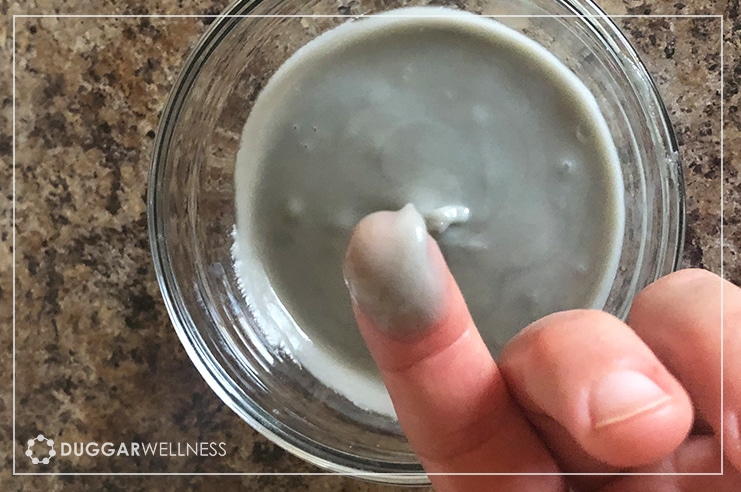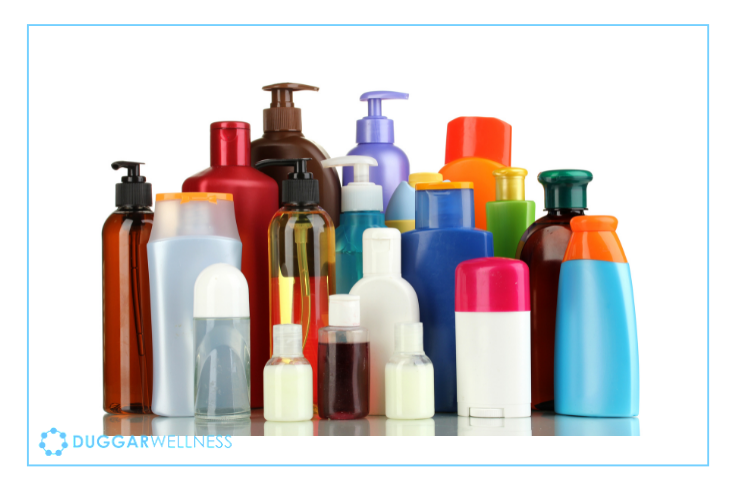Personal care products have become a multi-billion dollar industry in the United States. There are over 850 companies in the US that manufacture personal care products with combined annual revenue of $43 billion dollars. As consumers, we are seduced on a daily basis by the intoxicating aromas, flashy packaging, and the enticing promises of everlasting youth these products offer. But there is a dark side to this as well, the ugly truth about personal care products.
The growing awareness of chemicals in the foods we eat has led many to begin reading labels. If you are doing this as part of your regular shopping routine, I commend you, for taking the time to know what you are putting into your body. What about the products you are using on your body? Make-up, shampoo, deodorant, hairspray, lotion, and the list goes on and on. What ingredients are in those products and does it really matter?
In 2004, a six-month study was done about the use of personal care products. Some of the findings include:
Women use on average use 12 different personal care products with 168 unique ingredients.
Men, on average, use about 6 products with 85 different ingredients.
1 in every 13 women and 1 in every 23 men (only because women typically use more personal care products than men) are exposed to probable carcinogens everyday through these products.
One in every 24 women (4.3 women altogether) are exposed daily to personal care products ingredients that are known or probable reproductive and developmental toxins.
Worse than Eating Chemicals
Putting these chemicals on your body is actually worse than eating them. When you eat something, the enzymes in your saliva and stomach help to break it down and flush it out of your body. However, when you put these chemicals on your skin, they are absorbed straight into your bloodstream without filtering of any kind, going directly into your tissues and organs.
Once these chemicals find their way into your body, they tend to accumulate over time because you typically lack the necessary enzymes to break them down. There are literally thousands of chemicals used in personal care products, and the FDA does not require any mandatory testing for these products before they are sold.
Why Worry About Your Skin
Your skin is vital to your health, yet many people fail to take care of it. You should give your skin the same thoughtful care you give your diet because most of what goes ON you ends up going IN you. Your skin is much more than a wrap to keep all of your insides in. It is your body’s largest organ. You might not be aware of the many protective functions your skin serves.
8 Amazing Benefits Provided by our Skin
- Protects your internal organs from injury and infection and is your primary and most important defense against infections.
- It helps eliminate wastes through perspiration.
- Assists your immune system by providing a protective barrier to viruses and bad bacteria, thus preventing infections.
- It provides a friendly habitat for good bacteria.
- It helps maintain body temperature by controlling heat flow between you and your environment.
- Seals in moisture, maintaining your body’s delicate fluid balance.
- Produces vitamin D, a hormone that is essential for all body functions.
- Sends sensory feedback to your brain because it is rich in receptors, such as hard/soft and hot/cold, so that you can react to dangerous conditions around you.
Want to make a change to your beauty routine but feel a bit overwhelmed?
Tammie lays out an easy-to-follow plan in her article titled, 6 Tips for Transitioning to Natural Beauty Care. She’ll walk you through the process and share a link to her favorite natural make-up company too.
What Personal Care Item Should I Get Rid of First?
If I could only change one personal care product habit in the world it would be the use of deodorant, specifically antiperspirant. In fact, the more I have learned about our amazing body, the deodorant would actually be my number one recommendation in changing to a healthier lifestyle. Change your deodorant even before you worry about making any changes in what you eat or drink or even how much exercise you get in a day. Yep, it’s that important!
So What’s so wrong with Antiperspirants? Isn’t it better than big sweat rings?
One of the main ingredients in antiperspirant-type deodorants is aluminum chloride. Aluminum chloride is the substance that blocks your pores from releasing sweat and may also contribute to increased cancer risk.
Aluminum is also widely recognized as a neurotoxin, and Alzheimer’s patients typically have elevated levels of aluminum in their brains. While there are other sources of aluminum, antiperspirants are a major one, as most people use them on a daily basis.
Aluminum salts can account for 25 percent of the volume of some antiperspirants, and in one study reviewing the most common sources of aluminum exposure for humans found that antiperspirant use can significantly increase the amount of aluminum absorbed by your body. According to this study, about 0.12 percent of the aluminum applied under your arms is absorbed with each application. When you multiply that by one or more times a day for a lifetime, it can up to a massive amount of aluminum—a poison that may be more toxic than mercury!
Let’s Make Some Deodorant

Deodorant
- Author: Tammie Duggar
Ingredients
¼ cup + 1 Tbsp. arrowroot powder
1½ Tbsp. Baking Soda
2 Tbsp. coconut oil
1–2 Tbsp. almond, jojoba, or avocado oil
⅛ tsp. essential oils, optional
Favorite essential oils: Tea Tree, Lime, Lemon Grass, Wild Orange, Lemon, Bergamot
Instructions
In a small mixing bowl add all ingredients and stir together until thoroughly combined. If a thicker consistency is wanted, stir in 1 Tbsp. arrowroot powder at a time until desired consistency is met.
Store in a glass half pint jar.
Troubleshooting the Detox Period
Conventional deodorant clogs the pores trapping in both toxins and bacteria. When you stop using deodorant the body works to unclog all that junk that has built up over time. Your body will go through a detox period and you may notice the following symptoms:
Super Stinky
Super Sweaty
Swollen Lymph nodes
You can get over the detox period more quickly by drinking more water, avoiding processed foods and foods high in sugar, dry skin brushing, or sweat it out by doing some vigorous exercise or sitting in a sauna.
 160 N Main, Bountiful, UT 84010
160 N Main, Bountiful, UT 84010  801-677-7878
801-677-7878

3 responses to “The Ugly Truth about Beauty Care Products”
[…] ways to take care of the body by nourishing it with good, health promoting, food as well as using beauty care products that are also nourishing. As I coach people I help them understand that it is important to take […]
[…] your environment or lifestyle. These toxins are present in your home, in the air you breathe, the beauty care products you use and in the food you […]
[…] The Ugly Truth About Beauty Care Products […]